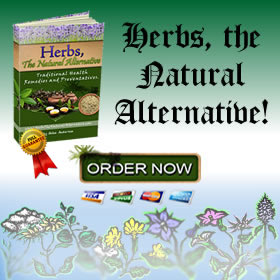Elderberry: The Ultimate Cold And Flu Fighter
If you’re tired of constantly battling colds and the flu, then it’s time to discover the ultimate secret weapon: elderberry. This small but mighty fruit has been used for centuries as a natural remedy for respiratory infections and is packed with powerful antioxidants and immune-boosting properties. Say goodbye to pesky illnesses and say hello to a healthier, stronger you. In this article, we’ll explore the countless benefits of elderberry and why it should be a staple in your cold and flu-fighting arsenal. Get ready to reclaim your health and win the battle against those troublesome viruses.
What is Elderberry?
Overview
Elderberry, scientifically known as Sambucus, is a genus of flowering plants that belongs to the Adoxaceae family. It is native to Europe, North Africa, and parts of Asia, but it has also been introduced in North America. The most common species used for medicinal purposes is Sambucus nigra, also known as European elderberry.
History
Elderberry has been used for centuries in traditional medicine due to its numerous health benefits. It has a rich history dating back to ancient Egypt and has been praised by various cultures throughout the ages. Native Americans, Ancient Greeks, and Romans all valued elderberry for its medicinal properties. In folk medicine, elderberry was traditionally used to alleviate symptoms of colds, flu, and other respiratory infections.
Botanical Description
Elderberries grow on shrubs or small trees, typically reaching a height of 10 to 30 feet. The berries are small, dark purple or black in color, and grow in clusters. The flowers of the elderberry plant are creamy white and produce a strong, sweet aroma. The leaves are arranged in opposing pairs and are serrated. Elderberry plants thrive in areas with moist soil and full sun exposure.
Health Benefits of Elderberry
Antioxidant Properties
Elderberry is a rich source of antioxidants, which are compounds that protect the body against free radicals and oxidative stress. Free radicals can cause damage to cells and contribute to the aging process and the development of chronic diseases. By consuming elderberry, you can benefit from its high concentration of antioxidants, including flavonoids and anthocyanins, which help neutralize free radicals and support overall health.
Boosts Immune System
One of the most well-known and researched health benefits of elderberry is its ability to boost the immune system. Elderberry contains vitamins A, C, and B6, as well as iron and potassium, which are essential nutrients for a strong and healthy immune system. Additionally, elderberry stimulates the production of cytokines, which are molecules that help regulate immune responses and protect the body against infections.
Reduces Cold Duration
Elderberry has been shown to be effective in reducing the duration and severity of cold symptoms. Several studies have demonstrated that elderberry extract can significantly shorten the duration of a cold by up to four days. It is believed that the antiviral properties of elderberry play a role in inhibiting the replication of cold viruses, thus reducing symptoms and promoting a quicker recovery.
Alleviates Flu Symptoms
In addition to its benefits in treating colds, elderberry has also been found to alleviate symptoms of the flu. The flu is caused by the influenza virus, and elderberry has shown promising antiviral effects against this specific virus. Research has suggested that elderberry extract can help reduce fever, relieve respiratory symptoms, and improve overall well-being in individuals suffering from the flu.
Anti-Inflammatory Effects
Elderberry possesses anti-inflammatory properties, which can help reduce inflammation in the body. Chronic inflammation is associated with various health conditions, including heart disease, diabetes, and autoimmune disorders. By consuming elderberry regularly, you can potentially lower inflammation levels and promote better overall health.
Active Compounds in Elderberry
Flavonoids
Elderberry is particularly rich in flavonoids, a type of antioxidant compound. Flavonoids have been extensively studied for their health benefits, including their anti-inflammatory, antioxidant, and immune-boosting properties. These compounds contribute to elderberry’s ability to combat oxidative stress and support overall well-being.
Anthocyanins
Anthocyanins are a subgroup of flavonoids that give elderberry its dark purple pigment. These powerful antioxidants have been linked to numerous health benefits, including improved cardiovascular health, reduced risk of chronic diseases, and enhanced immune function. Elderberry is one of the richest known sources of anthocyanins.
Polyphenols
Polyphenols are a diverse group of compounds found in plants, including elderberry. These compounds have been shown to have antioxidant, anti-inflammatory, and anticancer properties. Studies have suggested that polyphenols in elderberry contribute to its immune-boosting and disease-fighting effects.
Vitamins and Minerals
Elderberry is packed with essential vitamins and minerals that support overall health. It contains high levels of vitamin A, vitamin C, and vitamin B6, all of which play vital roles in maintaining a strong immune system. Additionally, elderberry is a good source of iron and potassium, which are important for various bodily functions.
Elderberry as an Antiviral
Inhibition of Viral Replication
One of the key mechanisms by which elderberry exerts its antiviral effects is by inhibiting viral replication. Elderberry contains natural compounds that prevent viruses from multiplying within the body. By inhibiting viral replication, elderberry helps reduce the viral load in the body and limit the spread of viral infections.
Prevention of Virus Binding
Elderberry has also been found to prevent viruses from binding to host cells, which is an essential step in the viral infection process. By blocking virus binding, elderberry reduces the ability of viruses to enter and infect cells. This antiviral mechanism helps to prevent the initiation of viral infections and supports the body’s natural defense systems.
Stimulation of Immune Response
Another way elderberry acts as an antiviral is by stimulating the immune response. Elderberry helps activate the immune system, promoting the production of cytokines and other immune cells that are crucial in fighting off viral infections. By enhancing the immune response, elderberry assists the body in defending itself against viruses.
Research on Elderberry
Clinical Studies on Cold Prevention
Several clinical studies have investigated the effectiveness of elderberry in preventing and treating the common cold. A randomized controlled trial conducted in Norway found that individuals who consumed elderberry extract experienced a significant reduction in cold duration and severity compared to those who received a placebo. Similarly, another study conducted in Australia showed that elderberry supplementation resulted in a marked decrease in cold symptoms in air travelers.
Studies on Flu Treatment
Numerous studies have also explored the potential of elderberry in treating the flu. A randomized controlled trial published in the Journal of International Medical Research found that elderberry extract significantly reduced the duration and severity of flu symptoms compared to a placebo. Another study conducted in Israel demonstrated that elderberry syrup was effective in relieving flu symptoms and shortening the duration of illness.
Scientific Evidence and Controversies
While there is substantial scientific evidence supporting the health benefits of elderberry, it is important to note that controversies exist. Some studies have reported conflicting results, and further research is needed to fully understand the mechanisms and efficacy of elderberry. Additionally, it is crucial to use high-quality elderberry products and follow proper dosage guidelines to ensure safety and effectiveness.
Methods of Taking Elderberry
Elderberry Syrup
Elderberry syrup is one of the most popular forms of consuming elderberry. It is made by cooking elderberries with water and sweetening it with honey or another natural sweetener. Elderberry syrup can be taken directly or added to beverages, such as hot tea or smoothies. It is known for its pleasant taste and is often used as a preventive measure during cold and flu seasons.
Elderberry Extract
Elderberry extract is a concentrated form of elderberry that can be found in liquid, capsule, or powder form. It is commonly used as a dietary supplement and provides a convenient way to obtain the health benefits of elderberry. Elderberry extract can be easily added to drinks, taken in capsule form, or incorporated into various recipes.
Other Elderberry Products
Apart from syrup and extract, there are other elderberry products available in the market. These include elderberry gummies, lozenges, teas, and even elderberry-infused skincare products. These products provide alternative options for individuals who prefer different methods of consumption or wish to incorporate elderberry into their daily routine.
Safety and Side Effects of Elderberry
Proper Dosage and Usage
When consuming elderberry, it is important to follow proper dosage guidelines to ensure safety and effectiveness. The appropriate dosage can vary depending on the form of elderberry product, individual factors, and specific health conditions. It is recommended to consult with a healthcare professional or follow the instructions provided on the product label for accurate dosing information.
Potential Side Effects
In general, elderberry is considered safe for most individuals when used as directed. However, some people may experience mild side effects, such as digestive discomfort or allergic reactions. These side effects are rare and usually resolve on their own. If any adverse reactions occur, it is advisable to discontinue use and seek medical advice.
Allergic Reactions
Although rare, allergic reactions to elderberry can occur, especially in individuals with known allergies to plants in the Adoxaceae family, such as honeysuckle. Symptoms of an allergic reaction may include itching, swelling, rash, or difficulty breathing. If experiencing any allergic symptoms after consuming elderberry, immediate medical attention should be sought.
Interactions with Medications
Elderberry may interact with certain medications, particularly those that suppress the immune system or have anticoagulant properties. It is important to consult with a healthcare professional, especially if you have underlying medical conditions or are taking medications, before incorporating elderberry into your health regimen.
Elderberry in Traditional Medicine
Historical Uses
Elderberry has a long history of use in traditional medicine. It has been used for centuries to alleviate a wide range of conditions, including respiratory infections, fevers, arthritis, and skin irritations. The berries, flowers, and bark of the elderberry plant have all been utilized for their medicinal properties. Traditional healers valued elderberry for its immune-boosting, anti-inflammatory, and antioxidant effects.
Folk Remedies
In folklore, elderberry has been associated with various folk remedies. For example, elderberry was believed to have protective properties against evil spirits and was hung over doorways or windows to keep negative energy away. Elderberry was also used in poultices to soothe skin conditions, brewed into teas for digestive complaints, and used in tonics to boost vitality. These folk remedies demonstrate the longstanding cultural significance of elderberry in different communities.
Growing and Harvesting Elderberry
Cultivation Tips
Elderberry can be grown in a variety of climates and soil conditions, making it a versatile plant for cultivation. It prefers full sun exposure and well-drained soil with a pH level between 5.5 and 6.5. Elderberry plants can be propagated from cuttings or purchased as young plants. They require regular watering and pruning to promote healthy growth. It is important to note that elderberry shrubs take a few years to reach full production, but once established, they can yield abundant berries for harvest.
Harvesting Elderberries
Elderberries are typically ready for harvest in late summer or early fall when the berries are fully ripe and dark purple or black in color. It is important to harvest the berries when they are fully ripe to obtain the maximum flavor and health benefits. The berries can be gently hand-picked, and care should be taken to remove any leaves or stems. Washed and dried elderberries can be stored in airtight containers or processed into various elderberry products.
Conclusion
Elderberry, with its long history of medicinal use, continues to be recognized as a powerful natural remedy for combating the common cold and flu. Its antioxidant properties, immune-boosting effects, and antiviral mechanisms make it an essential addition to any wellness routine. While more research is needed to fully understand its potential and clarify any controversies, the centuries-old tradition of using elderberry in traditional medicine is a testament to its efficacy. So, next time you find yourself reaching for over-the-counter cold or flu medication, consider giving elderberry a try and experience its ultimate cold and flu-fighting abilities firsthand.


